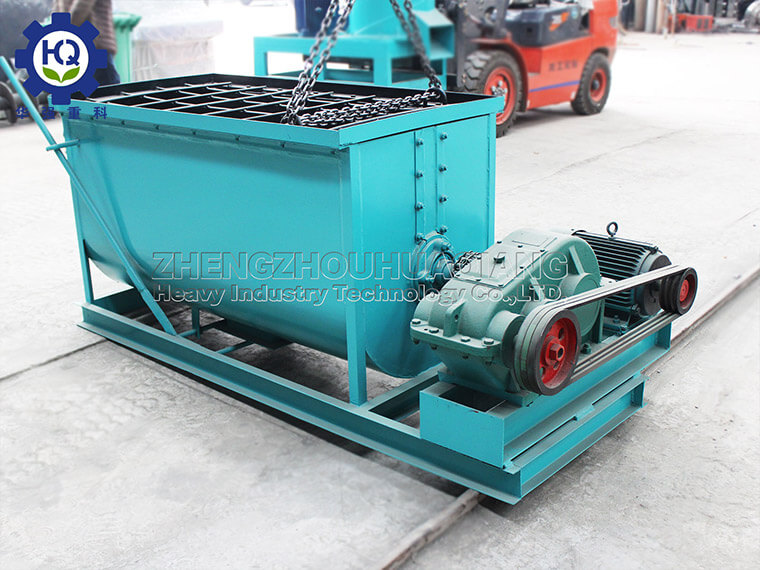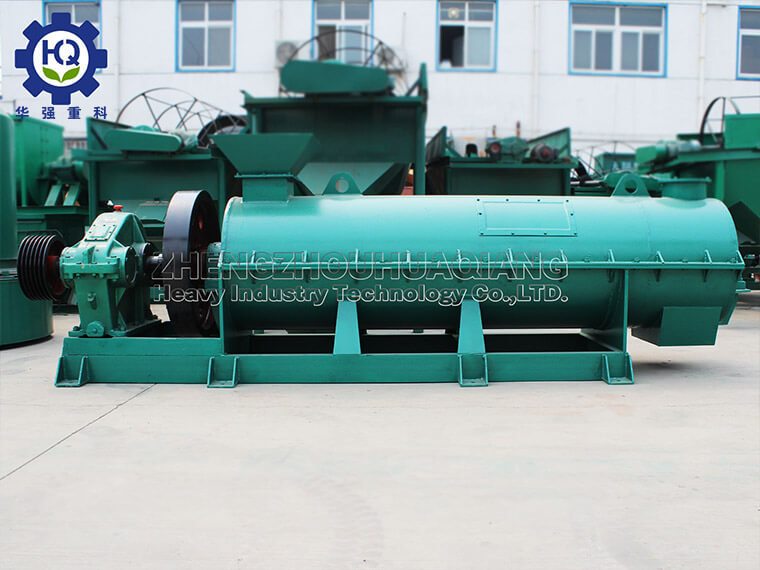Modern organic fertilizer mixers are equipped with advanced control systems, which play a crucial role in achieving precise operation, efficient operation, and quality assurance of the equipment.
The core of a control system is the controller, usually using a programmable logic controller (PLC). PLC is like the “brain” of a blender, it receives signals from various sensors and precisely controls the various components of the equipment according to preset programs. Operators can program the PLC through programming software, set various parameters and control logic to adapt to different production needs.
Sensors are the “perception organs” of the control system, responsible for real-time monitoring of the operating status and material information of the mixer. For example, flow sensors installed at the inlet and outlet can accurately measure the inflow and outflow of materials, and feed back this data to the PLC. By analyzing the flow data, PLC can adjust the operating speed of the feeding and discharging equipment, ensuring a balance between material supply and discharge, and avoiding material accumulation or shortage in the mixer.
The speed sensor installed on the mixing shaft monitors the speed of the mixing shaft in real time. The mixing speed is crucial for the mixing effect of materials. Based on the signal from the speed sensor, the PLC automatically adjusts the motor speed to ensure that the mixing process always proceeds within the set speed range. In addition, there are temperature sensors used to monitor the temperature inside the mixer to prevent excessive heat generated during the mixing process from affecting material quality or equipment performance. When the temperature exceeds the set value, the PLC will issue instructions to start the cooling device or adjust the mixing speed to reduce the temperature.
The organic fertilizer mixer is usually equipped with a human-machine interface (HMI) in terms of operation interface, such as a touch screen. Operators can visually view the operating parameters of the equipment through HMI, such as mixing speed, material flow rate, temperature, etc. They can also perform various operations, such as starting and stopping the equipment, adjusting parameter settings, etc. HMI displays device status through a graphical interface, making operation simpler and more convenient, reducing the labor intensity and difficulty of operators.
In addition, the control system also has fault diagnosis and alarm functions. When there is an abnormal situation in the organic fertilizer mixer, such as motor overload, sensor failure, etc., the PLC can quickly detect the problem and issue an alarm message through the HMI to prompt the operator to take corresponding measures. At the same time, the control system can also record the operational history data of the equipment, facilitating analysis and maintenance by management personnel, and improving the reliability and service life of the equipment. Through this comprehensive control system principle, the organic fertilizer mixer has achieved intelligent and automated operation, providing strong support for high-quality organic fertilizer production.







